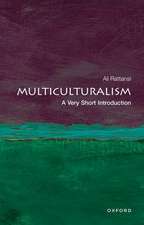Ethnic Boundary Making: Institutions, Power, Networks: Oxford Studies in Culture and Politics
Autor Andreas Wimmeren Limba Engleză Paperback – 7 feb 2013
| Toate formatele și edițiile | Preț | Express |
|---|---|---|
| Paperback (1) | 267.24 lei 31-37 zile | |
| Oxford University Press – 7 feb 2013 | 267.24 lei 31-37 zile | |
| Hardback (1) | 688.40 lei 31-37 zile | |
| Oxford University Press – 7 feb 2013 | 688.40 lei 31-37 zile |
Din seria Oxford Studies in Culture and Politics
- 14%
 Preț: 268.36 lei
Preț: 268.36 lei - 19%
 Preț: 177.84 lei
Preț: 177.84 lei - 9%
 Preț: 197.34 lei
Preț: 197.34 lei - 9%
 Preț: 199.10 lei
Preț: 199.10 lei - 19%
 Preț: 198.22 lei
Preț: 198.22 lei -
 Preț: 427.90 lei
Preț: 427.90 lei - 5%
 Preț: 275.94 lei
Preț: 275.94 lei - 9%
 Preț: 168.21 lei
Preț: 168.21 lei -
 Preț: 250.62 lei
Preț: 250.62 lei -
 Preț: 182.22 lei
Preț: 182.22 lei - 7%
 Preț: 157.77 lei
Preț: 157.77 lei - 18%
 Preț: 166.89 lei
Preț: 166.89 lei - 15%
 Preț: 412.66 lei
Preț: 412.66 lei - 12%
 Preț: 136.71 lei
Preț: 136.71 lei - 30%
 Preț: 494.19 lei
Preț: 494.19 lei -
 Preț: 253.71 lei
Preț: 253.71 lei - 12%
 Preț: 238.13 lei
Preț: 238.13 lei -
 Preț: 274.77 lei
Preț: 274.77 lei -
 Preț: 266.56 lei
Preț: 266.56 lei - 14%
 Preț: 251.28 lei
Preț: 251.28 lei - 12%
 Preț: 240.60 lei
Preț: 240.60 lei - 28%
 Preț: 459.91 lei
Preț: 459.91 lei - 18%
 Preț: 300.14 lei
Preț: 300.14 lei - 28%
 Preț: 455.13 lei
Preț: 455.13 lei
Preț: 267.24 lei
Nou
Puncte Express: 401
Preț estimativ în valută:
51.14€ • 53.20$ • 42.22£
51.14€ • 53.20$ • 42.22£
Carte tipărită la comandă
Livrare economică 03-09 aprilie
Preluare comenzi: 021 569.72.76
Specificații
ISBN-13: 9780199927395
ISBN-10: 0199927391
Pagini: 304
Ilustrații: 10 b/w line, 2 b/w halftone
Dimensiuni: 231 x 155 x 23 mm
Greutate: 0.43 kg
Editura: Oxford University Press
Colecția OUP USA
Seria Oxford Studies in Culture and Politics
Locul publicării:New York, United States
ISBN-10: 0199927391
Pagini: 304
Ilustrații: 10 b/w line, 2 b/w halftone
Dimensiuni: 231 x 155 x 23 mm
Greutate: 0.43 kg
Editura: Oxford University Press
Colecția OUP USA
Seria Oxford Studies in Culture and Politics
Locul publicării:New York, United States
Recenzii
Ethnic Boundary Making has the makings of a classic. The author takes on a vast and important topic, provides a bold and ambitious theoretical agenda, and engages in theory development by convincingly confronting his hypotheses with data of various kinds. As he goes along, Wimmer explains the implications of his findings for a wide range of theories and debates in sociology and beyond, engaging with the best and the brightest in the multi-disciplinary literatures on ethno-racial divisions, immigration and citizenship, and group formation. This ambitious book will surely leave its mark and be widely debated.
Notă biografică
Andreas Wimmer is Professor of Sociology and Faculty Associate of Politics at Princeton University. His research is aimed at understanding the dynamics of nation-state formation, ethnic boundary making and political conflict from a comparative perspective. He is author of Nationalist Exclusion and Ethnic Conflicts: Shadows of Modernity (Cambridge, 2002) and Waves of War: Nationalism and Ethnic Politics in the Modern World (Cambridge 2012) and his articles have been published by the American Journal of Sociology, the American Sociological Review, World Politics, Sociological Theory and Ethnic and Racial Studies, among others. Professor Wimmer's work has won best article awards from the Comparative Historical, Political, Cultural, and Theory sections of the American Sociological Association as well as the Thyssen Prize for Best Article in the Social Sciences.












